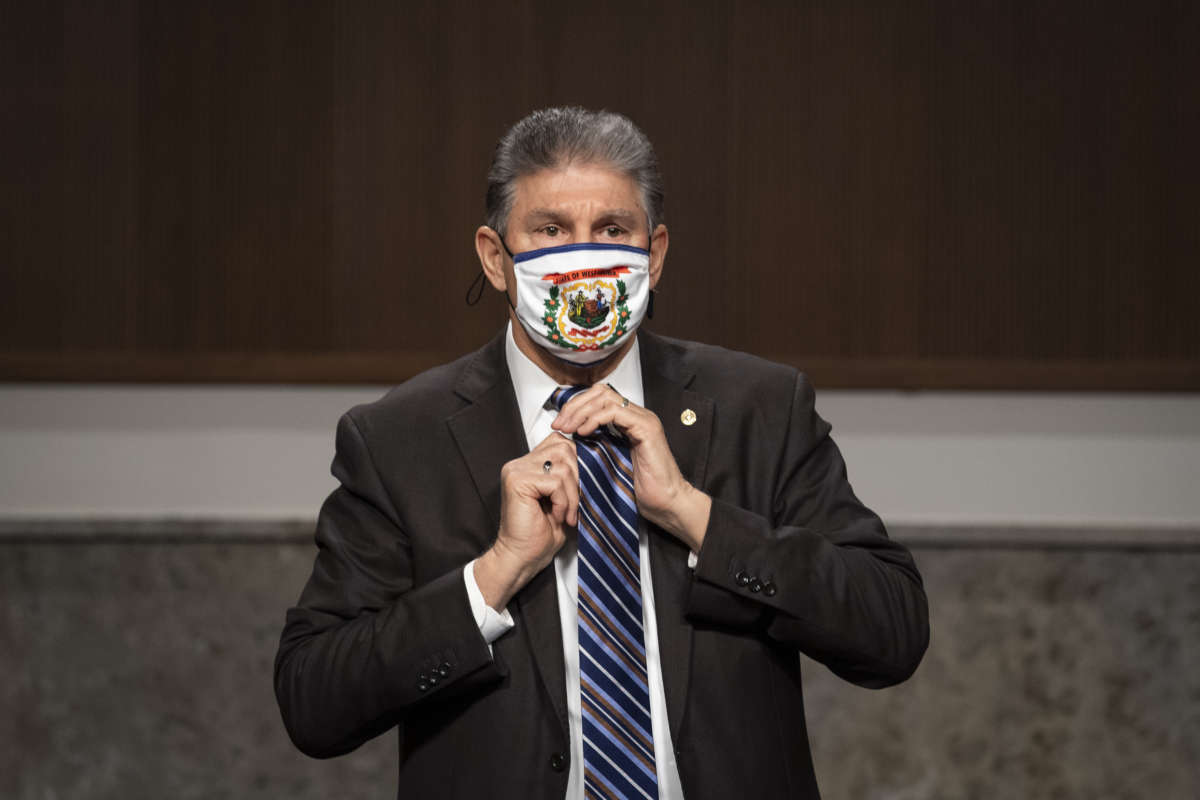The U.S. Senate is on track to approve a coronavirus relief package as early as Saturday after a session that extended late night Friday into Saturday morning and that included conservative Democratic Sen. Joe Manchin of West Virginia ensuring the package is less generous for economically struggling Americans.
As of this writing, senators were still voting on a number of amendments to the $1.9 trillion rescue bill.
“By daybreak Saturday,” according to The Associated Press, “senators had worked through more than a dozen [mostly Republican] amendments without substantially changing the overall package.”
Senator Ted Cruz's (R-Tex.) amendments to relief package:
— Make sure prisoners are not eligible for stimulus payments
— Make sure undocumented immigrants are not eligible ofr stimulus payments
— Provide children with option for in-person education if schools remain closed— Jeff Stein (@JStein_WaPo) March 6, 2021
The package was already made less generous than the House-passed version after it was neutered on Friday of its popular provision to raise the federal minimum wage to $15, thanks in part to Manchin.
“To be clear, Senator Manchin is choosing to vote against his constituents, but clearly support his donors,” said Rep. Marie Newman (D-Ill.).
Manchin faced further criticism after successfully pushing back against a proposed boost to the existing $300-a-week unemployment benefits.
With the party’s narrow control of chamber, and broad GOP opposition to the bill, Senate Democrats can’t afford a single caucus member’s opposition if there’s any hope of the package passing.
The good news is the COVID bill expands the earned income tax credit and almost doubles the child tax credit — providing needed help to poor families, especially of color. It will cut child poverty in half while also helping parents pay for childcare.
The bad news: Joe Manchin.
— Robert Reich (@RBReich) March 6, 2021
According to Reuters, “The Senate set a record for its longest single vote in the modern era—11 hours and 50 minutes — as Democrats negotiated a compromise on unemployment benefits to satisfy centrists like Senator Joe Manchin.”
Pointing to the West Virginia lawmaker’s “outsized influence,” evidenced in part by his minimum wage boost blockade, Politico framed Friday as “Manchin’s most quintessential moment” after he “paralyzed the entire Senate for more than 10 hours and threatened to side with Republicans seeking to cut weeks of unemployment benefits.” The outlet continued:
In the end, it took a direct call from President Biden, a meeting with [Senate Majority Leader Chuck] Schumer, and significant concessions to get Manchin on board. He trimmed several weeks of unemployment benefits off of Sen. Tom Carper’s (D-Del.) compromise amendment from earlier in the day and added a $150,000 cap to the proposal’s tax deduction for up to $10,200 in unemployment benefits.
The deal means federal unemployment benefits will be $300 a week — $100 per week less than the House-passed bill called for — and will expire September 6.
Dem aide trumpets agreement "ACCEPTED BY MANCHIN" (caps mine) to approve UI through Sept. 6 at $300/week. Includes tax forgiveness on $10K in UI below $150K annula income
Biden's initial plan: UI at $400 through end of September
— Jeff Stein (@JStein_WaPo) March 6, 2021
Senate Finance Committee chair Ron Wyden (D-Ore.), while lamenting the reduction in weekly UI benefits, welcomed the fact that they’re extended through the first week of September rather than in August when the chamber would not have been in session. “My top priority throughout these negotiations has been securing the strongest possible deal for jobless workers that could pass the Senate. This agreement achieves that,” he said late Friday.
In a Saturday morning tweet, Wyden added, “Senate Democrats are just hours away from passing the most comprehensive relief package in American history.”
Sen. Sherrod Brown (D-Ohio) also sought to sound a positive note.
“Do not lose sight of this fact,” Brown tweeted Friday night. “We are on the cusp of passing the most transformative relief bill in our nation’s history.”
Speaking against the authoritarian crackdown
In the midst of a nationwide attack on civil liberties, Truthout urgently needs your help.
Journalism is a critical tool in the fight against Trump and his extremist agenda. The right wing knows this — that’s why they’ve taken over many legacy media publications.
But we won’t let truth be replaced by propaganda. As the Trump administration works to silence dissent, please support nonprofit independent journalism. Truthout is almost entirely funded by individual giving, so a one-time or monthly donation goes a long way. Click below to sustain our work.
